A recent graduation was a chance for steel processing and distribution company Steel & Tube to acknowledge the achievements of 12 staff members who completed a workplace literacy and numeracy course. This was funded by the Tertiary Education Commission via the Workplace Literacy and Numeracy Fund.
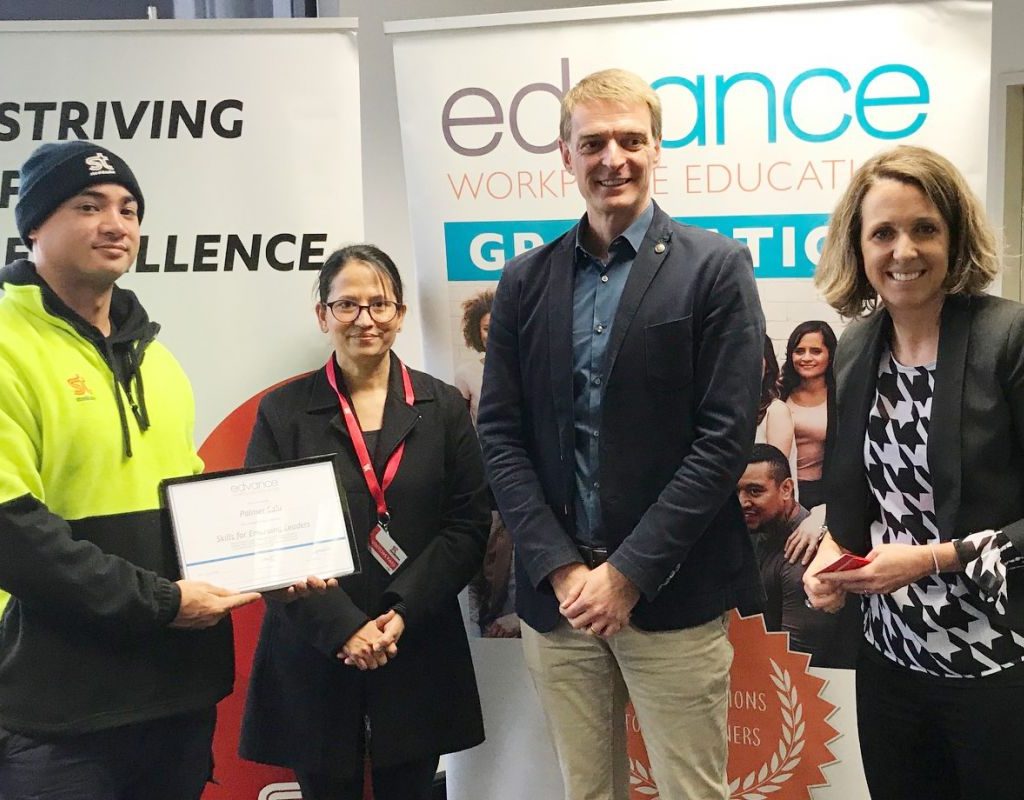
Steel and tube graduation July 2020.
The learners persevered to successfully complete seven months of training, despite the programme being put on hold due to COVID-19 restrictions.
As a result of the course, each of the learners have grown in confidence at work, within their families and in their communities.
Hear from the learners in this video:
Meeting a need
Steel & Tube were looking to lift the capability of their team, so they worked with learning provider Edvance to plan two bespoke workplace literacy and numeracy programmes, run concurrently with general staff and team leaders.
The programme aimed to:
enhance everyone’s understanding of their role in maintaining workplace health and safety;
improve understanding of workplace documentation;
improve communication with clients and within the team, and
lift problem-solving and leadership skills.
Delivering the programme
All session content and documentation was directly related to actual workplace situations and issues. This made the learning relevant and immediately applicable. The training brought together members from different teams and they enjoyed learning about the different areas and exchanging ideas to support each other.
“There was humour and lots of laughter, creating a great learning atmosphere,” commented Edvance tutor Edna.
Throughout the programme, especially through the COVID-19 disruptions, the support and commitment of management to the programmes’ continuance was crucial.
Outcomes
At the graduation, learners shared personal reflections. Key themes that emerged were leadership, cultural diversity, communication, improved English language skills and opportunities.
Steel & Tube’s chief executive and human resources manager attended the graduation and were encouraged by these stories of achievement.
In their feedback 100% of the learners said they had achieved both their personal and the programme goals. They believed they were better equipped to motivate their teams and solve problems and communicate well with their teams.
“Edvance were open to any adaptions required that covered both the professional and personal growth of learners. The programme content was relevant and included real life scenarios. The supervisors have been implementing what they have learned which is great to see. There has been growth in confidence and great awareness around health and safety within the team.
“Both the CEO & general manager were quite impressed with the speeches and all the learning that took place. We would definitely recommend the programme as we are able to see the value the programme has added and the long-term benefits.” – Manager, Steel & Tube.
The training has been so successful that a new programme has already been launched at the Hamilton site and more are planned for Auckland.
An amended version of this case study was first published by Edvance.

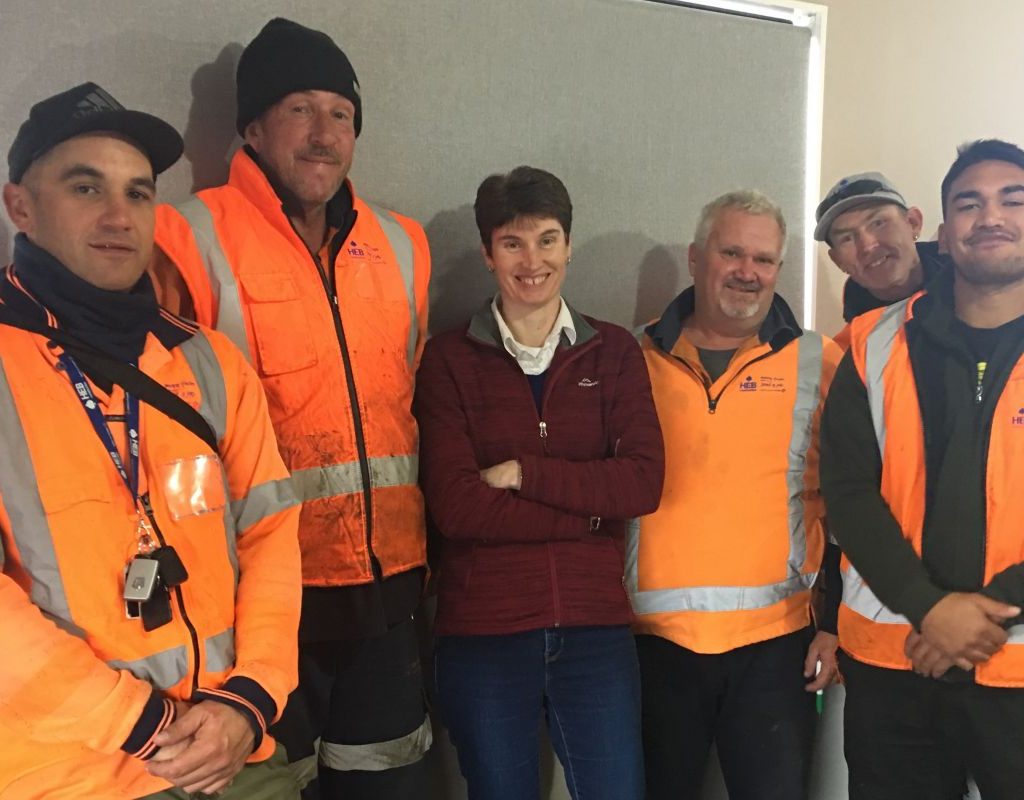
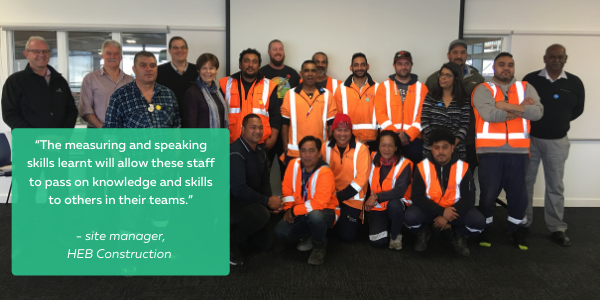 By improving literacy, numeracy and communication skills in the workplace, HEB have seen a positive growth in staff confidence, apprenticeship participation and achievement, and an increase in teamwork and communication.
By improving literacy, numeracy and communication skills in the workplace, HEB have seen a positive growth in staff confidence, apprenticeship participation and achievement, and an increase in teamwork and communication.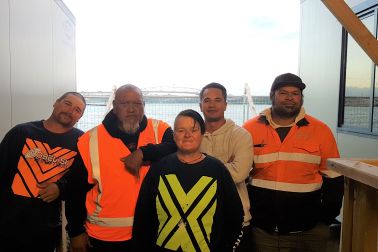
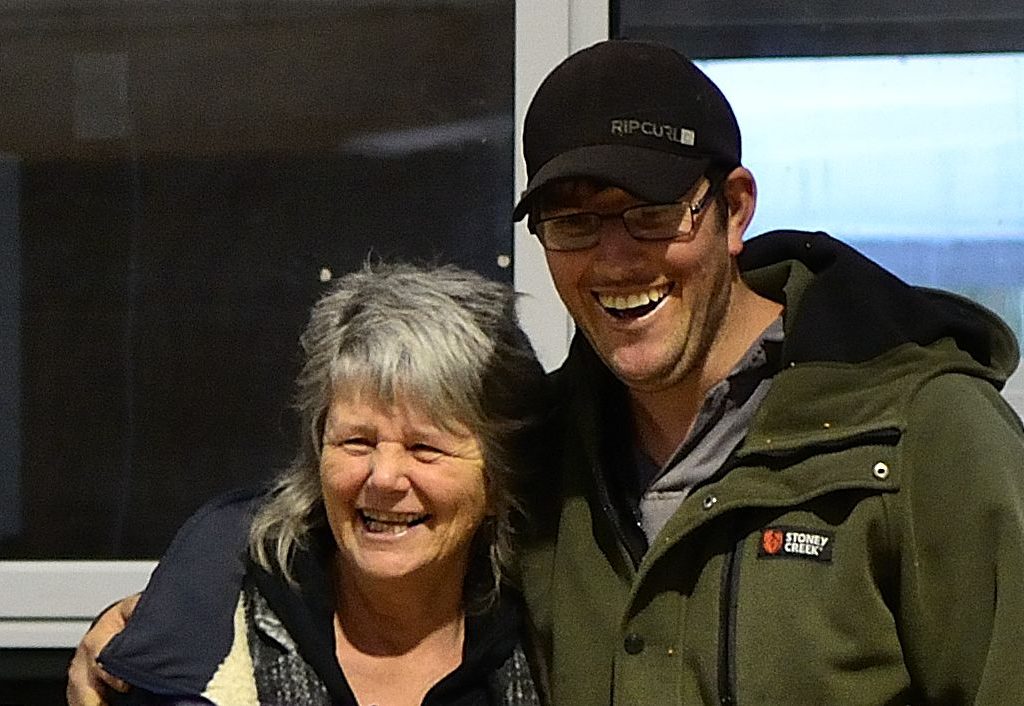

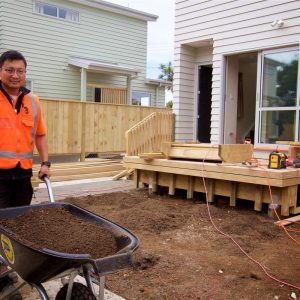 Korean born, Auckland-based building apprentice Joseph Lee says his ELPNZ course has made a huge difference. “I couldn’t speak English very well. I really wanted to learn, but I couldn’t get much of a chance. I have to work and I have a family. I needed money.”
Korean born, Auckland-based building apprentice Joseph Lee says his ELPNZ course has made a huge difference. “I couldn’t speak English very well. I really wanted to learn, but I couldn’t get much of a chance. I have to work and I have a family. I needed money.” 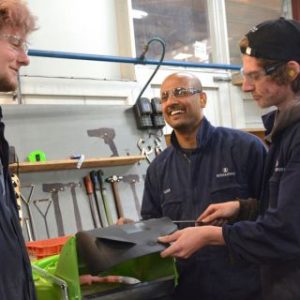 Joseph says he is now much more confident at work, as he learned all about building terminology. “I recommend the course, as long as they really want to speak English and to be a New Zealander. If they are eager to learn. My boss is happy.”
Joseph says he is now much more confident at work, as he learned all about building terminology. “I recommend the course, as long as they really want to speak English and to be a New Zealander. If they are eager to learn. My boss is happy.” 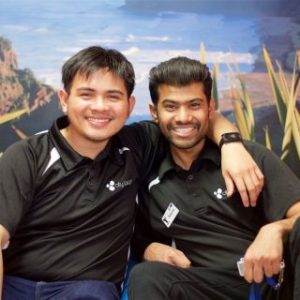 Justin Dado is also a team leader, of the housekeeping team at Auckland’s YMCA, which comprises five different nationalities and deals with visitors from all corners of the globe. “You’ve really got to get in there,” says Justin. “People are people. It doesn’t matter where they are from. You just need to engage, and doing that will reveal just how much we are all alike.”
Justin Dado is also a team leader, of the housekeeping team at Auckland’s YMCA, which comprises five different nationalities and deals with visitors from all corners of the globe. “You’ve really got to get in there,” says Justin. “People are people. It doesn’t matter where they are from. You just need to engage, and doing that will reveal just how much we are all alike.” 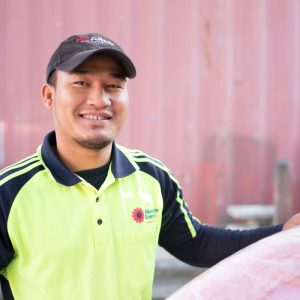 Installation installer, Johnsy Johnsy, can now confidently greet homeowners in English. “I introduce myself with my name and my partner’s name. I say ‘We’re from Absolute Energy and we’ve come to install your insulation. It’s good for me. I’m better than before,” says Johnsy, who has settled in Nelson with his wife and two-year-old daughter. “Even when people talk fast now, I can understand.”
Installation installer, Johnsy Johnsy, can now confidently greet homeowners in English. “I introduce myself with my name and my partner’s name. I say ‘We’re from Absolute Energy and we’ve come to install your insulation. It’s good for me. I’m better than before,” says Johnsy, who has settled in Nelson with his wife and two-year-old daughter. “Even when people talk fast now, I can understand.”